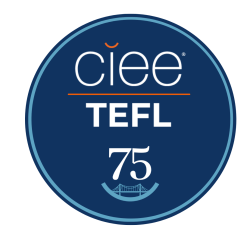How To Market Yourself after TEFL
So you’re thinking about what’s next. Your future. You might be headed back home soon, and you are grappling with the inevitable question:
What will I do after teaching English abroad?
Maybe you decided teaching wasn’t for you or don’t want to make a career out of it. Or maybe you are unsure how to most effectively explain your time abroad to a potential employer or how to best market yourself on a resume. You may even have a TEFL certificate. How does this (life-changing) experience transfer to an entirely different career?
The good news is that it’s 2016. We are amidst a continually growing global marketplace, and employers are placing even more importance on the ability to be an effective communicator internationally and with those from different cultures. As a teacher in a foreign country, you have proved that you are a risk-taker. With that, you gained exponential new and valuable experiences that will make you stand out in a stack of job or graduate school applications. And your decision to teach abroad will continue to pay off.
Capitalize on your global experiences.
These make great talking points in interviews. Don’t underestimate the importance of real-world experience. Aside from teaching students and trying to keep up with the local language, maybe you were solving transportation crises in Thailand, or figuring out how to negotiate with street vendors in China.
What did you personally gain from teaching English in a foreign country? Increased patience, cultural understanding, greater adaptability, a larger worldview, improved communication with others, management and leadership abilities, a high sense of confidence and independence in unfamiliar environments…just to name a few. Don’t be afraid to mention personal experiences, either—this will make you even more memorable.
Brag about your TEFL certificate.
Another resume booster! Maybe you won’t be teaching professionally anymore, but that doesn’t mean your hard-earned TEFL certification will go to waste. This course gives you enhanced professional development, and trains you for increased interpersonal skills, relationship building, cognitive and problem-solving skills, and cross-cultural sensitivity. It’s all about relating one experience and ability to the next—even lesson planning skills can correlate directly to project planning for a company.
Don’t discount your countless hours of managing hundreds of students per week in a foreign country. Adaptability and changing to new environments can help you in whatever career you choose. Or, you may never want the adventure to end! Don’t forget your TEFL certificate never expires, and with it there are ceaseless job opportunities abroad—especially if you are an alumni of ours.
What are your post-TEFL plans? Leave a comment!

